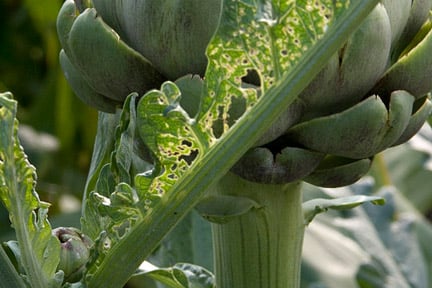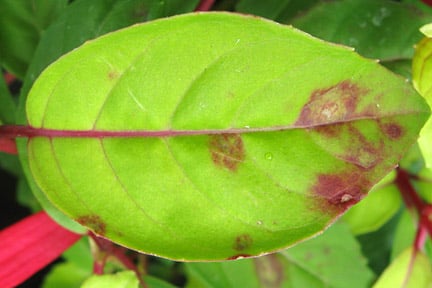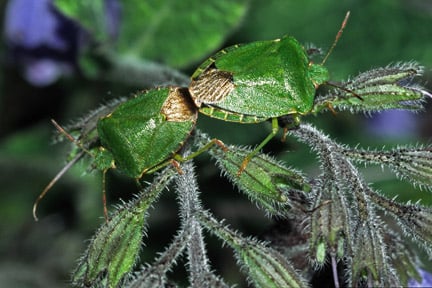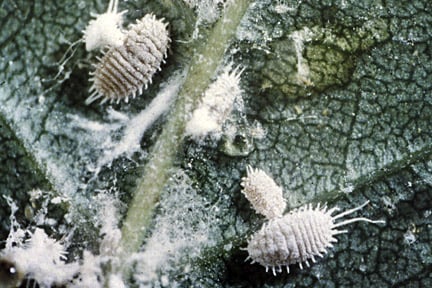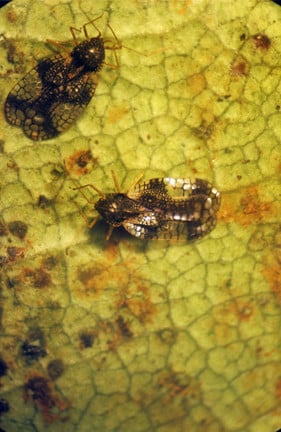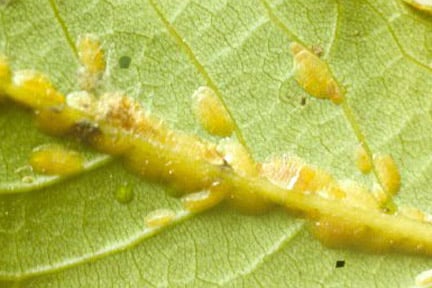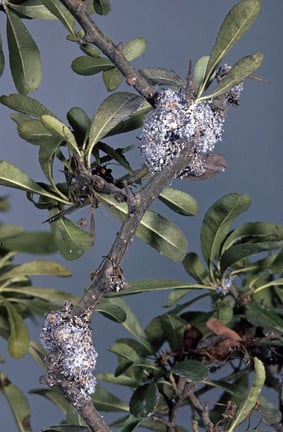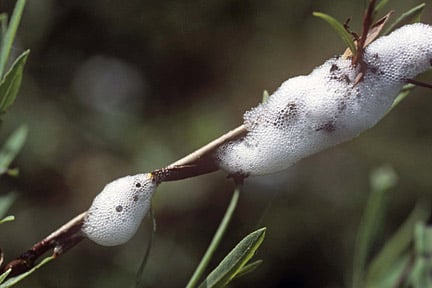
Quick facts
Common name - Cuckoo spit, caused by froghopper/spittlebug nymphs
Scientific names - Various species but mainly common meadow spittlebug Philaenus spumarius
Plants affected - Many plants, including chrysanthemum, dahlia, fuchsia, lavender, rosemary, rose and willow
Main symptoms - Blobs of white frothy liquid form on plant stems. A small pale insect lives inside the froth
Most active - May-July
What is cuckoo spit?
Cuckoo spit is a white frothy liquid secreted by the nymphs of -sucking true bugs known as a froghoppers. They are also known as spittlebugs. It appears in spring at a time when the familiar call of cuckoos can be heard, but has no connection with the bird.
There are ten species of froghopper found in the UK, across two families, the Aphrophoridae and the Cercopidae. Some species such as the Common froghopper Philaenus spumarius feed on a range of plants others such as Aphrophora pectoralis feed largely on one group of hosts. More information and images of UK froghoppers can be found from British Bugs.
Symptoms
- Blobs of white frothy liquid develop on young stems and leaves of a range of plants in late spring and summer
- Each blob contains a creamy white insect nymph up to 4-6 mm (¼ in) long
- Usually plant growth is unaffected, but, if the nymph has been feeding at the shoot tip, this may cause some distorted growth
Froghoppers and Xylella
Xylella fastidiosais a bacterial disease of a wide range of plants and causes symptoms including leaf scorch, wilt, dieback and plant death. It is causing serious problems in Southern Europe but it has not yet been detected in Britain. The disease is spread by insects that feed on the of plants. This includes froghoppers.
Xylella is not in the UK but could be introduced through the importation of infected plants. The RHS was a partner in a collaborative project which had aims to understand and prevent the introduction of vector-borne plant pathogens, especially Xyllela, to the UK and the challenges they pose to the UK flora. The BRIGIT project was funded by the Biotechnology and Biological Sciences Research Council, Department for Environment, Food and Rural Affairs, and the Scottish Government to reduce this risk and to increase capability to respond to an outbreak. The project was undertaken by scientists in ten UK research organisations led by the John Innes Centre.
Spittlebugs are not a pest, so please don't remove them; they are an innocent carrier of Xylella outside of the UK UK and are part of the a healthy garden ecosystem.
Management
Apart from producing the 'spit' these insects have little detrimental effect on plants and they are part of the that healthy gardens support.
Biology
Adult froghoppers are present during mid-late summer and live openly on plants. They do not produce cuckoo spit or cause any noticeable damage despite being -sucking insects.They deposit overwintering eggs in plant stems during late summer. It is the immature stages, called nymphs, which hatch in spring, that secrete the white froth known as cuckoo spit. This substance has nothing to do with cuckoos; it is presumably a means of protecting themselves against predators and adverse environmental (weather) conditions.
